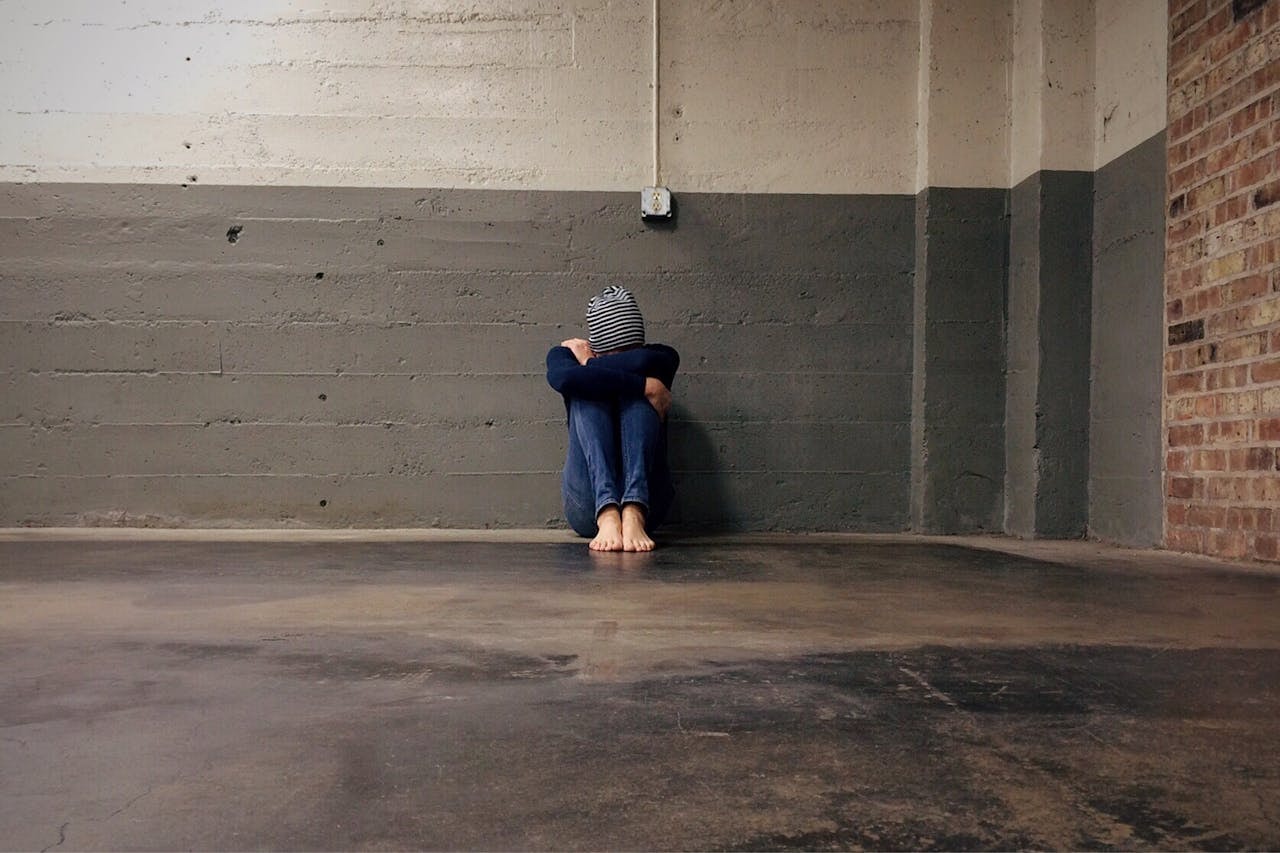Mental health challenges and homelessness are two deeply intertwined issues affecting countless people in Australia. The homeless population faces an increased risk of mental health condition, and conversely, mental illness can often lead to the loss of stable housing. These intersecting issues require specialised support systems, and that’s where the National Disability Insurance Scheme (NDIS) comes into play. As a registered NDIS provider, we aim to shed light on how to give support for mental health in homeless populations, offering comprehensive solutions that address their needs.
This guide will explore the vital connection between homelessness and mental health, examine how the NDIS helps vulnerable individuals, and provide a roadmap for those seeking assistance.
Understanding Mental Health and Homelessness in Australia
In Australia for example, homelessness is a significant social issue, with over 116,000 people reported as homeless, according to the Australian Bureau of Statistics. Among this population, mental health condition is prevalent, with more than half of homeless people facing serious mental illness. The link between homelessness and mental health condition is undeniable, with unstable living conditions exacerbating mental illness and mental health issues often contributing to housing insecurity.
How Mental Health Issues Increase the Risk of Homelessness

Individuals with mental health condition, such as depression, anxiety, and schizophrenia, often struggle to maintain stable housing. Without adequate mental health services, people with serious mental illness may find it challenging to keep up with everyday life demands, contributing to decrease in labour force status, strained family relationships, and an eventual breakdown of housing arrangements. The risk of becoming homeless is significantly heightened without proper mental health support.
The Role of NDIS in Supporting Mental Health for Homeless Populations
The NDIS is designed to provide tailored support for individuals with disabilities, including those with mental health condition. For homeless populations, NDIS offers much-needed services that focus on both mental health and housing stability. The program provides funding for essential services, including psychiatric assessment, case management, and therapeutic support, ensuring that individuals receive a comprehensive approach to mental health care.
NDIS Services for People Experiencing Homelessness

The NDIS offers a variety of services to people experiencing homelessness. These include:
- Psychiatric services: Assessments and ongoing mental illness treatment.
- Case management: Coordinating housing, health services, and other essential needs.
- Support to live independently: Helping people transition from homelessness to a stable home.
Through these services, NDIS aims to support individuals not just in managing their mental health condition but also in finding and maintaining secure, affordable housing.
Accessing NDIS Services as a Homeless Individual
Applying for NDIS services as a homeless person can seem overwhelming, but with the help of mental health professionals and case managers, the process is streamlined. NDIS service agencies often work closely with organisations that serve homeless populations, helping individuals navigate the application process, access assessments, and receive the support they need to improve their mental health and housing situations.
Barriers to Accessing Mental Health Support in Homeless Populations
One of the most significant challenges faced by homeless individuals is the lack of access to necessary documentation, such as identification or medical records, which can delay or prevent access to NDIS services. Moreover, people experiencing homelessness may not be aware of their eligibility for NDIS support. However, mental health professionals, along with NDIS case managers, are trained to help overcome these barriers and ensure that vulnerable individuals receive the care they deserve.
Case Management: A Lifeline for Homeless Individuals

Case managers are central to providing homeless individuals with a coordinated approach to mental health care. They work closely with clients to assess their needs, coordinate psychiatric services, and help them access stable housing. Through the NDIS, case managers provide ongoing support that ensures people experiencing homelessness can address their mental health issues and regain control over their lives.
Stable Housing and Mental Health: Breaking the Cycle
Access to stable housing is crucial for anyone with mental health conditions. For homeless individuals, the absence of a secure home exacerbates their mental health issues, creating a cycle that is difficult to break. Affordable housing is a key component of NDIS support, as stable living conditions significantly improve health outcomes and contribute to long-term recovery.
The Relationship Between Homelessness and Mental Health Conditions
Mental health conditions and homelessness are inextricably linked. Research shows that more than half of people experiencing homelessness suffer from mental health problems, and many have already experienced homelessness through couch surfing, temporary housing, or sleeping rough. Without adequate mental health treatment, these individuals are often unable to regain stability, and many remain on the streets. This is where NDIS’s role becomes critical in providing the psychiatric support and housing assistance necessary to break the cycle.
NDIS and Trauma-Informed Care for Homeless Populations
Many homeless individuals have experienced trauma, which compounds their mental health challenges experience homelessness. NDIS providers deliver trauma-informed care, ensuring that psychiatric assessments and treatment plans are sensitive to the unique needs of people experiencing homelessness. By addressing trauma alongside mental illness, NDIS services can foster long-term recovery and well-being.
Mental Health Treatment and Substance Use

Substance use is often a coping mechanism for those experiencing mental health issues and homelessness. NDIS services include access to treatment for both mental health conditions and alcohol and substance use disorders, offering a holistic approach to care. This integrated support helps individuals address the root causes of their homelessness and mental illness, improving their chances of long-term stability.
How NDIS Empowers People Experiencing Homelessness to Live Independently
One of the primary goals of NDIS is to help individuals live independently. For homeless people, this means providing the support necessary to transition from homelessness to independent living in a stable home. NDIS case managers and mental health professionals work together to ensure that clients have the resources, treatment, and housing assistance needed to achieve this goal.
The Importance of Community Support in Addressing Mental Health and Homelessness
Addressing mental health and homelessness requires a collective effort. NDIS works closely with local communities, families, and health service agencies to provide a comprehensive network of support. Community organisations, such as Sacred Heart Mission, play a crucial role in supporting people with mental health conditions and helping them access NDIS services. By working together, we can provide a safety net for those at risk of homelessness.
The Impact of NDIS on Health Outcomes for Homeless Individuals
NDIS services have a profound impact on improving the mental health condition and well-being of homeless individuals. By offering psychiatric services, housing assistance, and community support, NDIS ensures that people with serious mental illness can receive the care they need. Research shows that access to NDIS services leads to better mental health outcomes, reduced hospitalisations, and a higher likelihood of achieving stable housing.
The Role of Mental Health Professionals in NDIS Support

Mental health professionals, including psychiatrists and psychologists, play an integral role in delivering emergency NDIS support. They conduct psychiatric assessments, develop treatment plans, and provide ongoing care for homeless individuals. Their expertise ensures that people with mental illness receive the most appropriate care for their condition.
Addressing Mental Health and Homelessness through Collaborative Approaches
Collaboration between mental health services, NDIS, and homelessness agencies is critical for providing effective care. Organisations like Sacred Heart Mission, alongside NDIS, offer a coordinated approach to addressing both mental health and homelessness. By working together, these agencies ensure that homeless individuals receive comprehensive care that addresses all aspects of their well-being.
Mental Health Support for Special Populations: Women, Indigenous Australians, and Families
Certain populations, such as women, Indigenous Australians, and families, face unique challenges when it comes to homelessness and mental health. NDIS provides specialised support for these groups, ensuring that their cultural, social, and emotional needs are met. Tailored services help these individuals regain their footing and avoid the risks associated with long-term homelessness.
Statistics: Mental Health and Homelessness in Australia
According to data from the Australian Bureau of Statistics, homelessness and mental health conditions are closely connected, with almost one third of homeless individuals suffering from serious mental illness. These statistics highlight the urgent need for integrated mental health and housing support services like NDIS, which can help reduce the incidence of homelessness in Australia.
How NDIS Addresses Mental Health for People Sleeping Rough
For individuals who are sleeping rough, NDIS provides essential support services, such as mental health treatment, housing assistance, and case management. These services help break the cycle of homelessness by addressing the mental health conditions that often keep people on the streets.
Case Study: Overcoming Mental Health and Homelessness through NDIS
Consider the case of one quarter, Sarah, who had been homeless for several years and suffered from severe depression. Through the help of an NDIS case manager, Sarah was able to access psychiatric services, find stable housing, and receive ongoing support. Today, Sarah is living independently and managing her mental health condition with the help of NDIS services.
How to Access NDIS Support for Mental Health in Homeless Populations
For people experiencing homelessness or at risk of homelessness, accessing NDIS services is straightforward. Homeless individuals can apply for NDIS support by visiting their own agency, local NDIS office or through organisations that provide homeless outreach services. Mental health professionals and case managers are also available to assist in the application process.
Conclusion
Addressing the complex relationship between mental health and homelessness requires a coordinated, compassionate approach. The NDIS provides essential support for individuals experiencing both challenges, offering mental health treatment, housing assistance, and case management to help them regain stability and independence. If you or someone you know is experiencing mental health issues and homelessness, the NDIS offers a lifeline to better health outcomes and a brighter future.
FAQs:
1. How does NDIS help people with mental illness who are homeless? NDIS provides comprehensive support through psychiatric services, case management, and housing assistance.
2. What are the eligibility criteria for NDIS mental health services? Eligibility depends on having a diagnosed mental health condition and needing ongoing support for daily living.
3. Can people sleeping rough access NDIS services? Yes, NDIS offers services to individuals in all forms of homelessness, including those sleeping rough.
4. How can NDIS help prevent homelessness? NDIS supports individuals in maintaining stable housing through mental health treatment, case management, and trauma-informed care.
5. What agencies collaborate with NDIS to support homeless populations? Agencies like Sacred Heart Mission, along with mental health professionals, provide coordinated care with NDIS.


